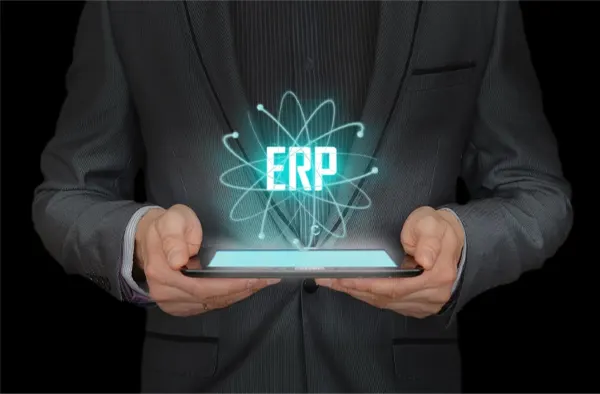Enterprise Resource Planning (ERP) has become a core component of how businesses manage various processes, from finance to supply chain operations. With the advent of cloud technology, traditional ERP systems are evolving into cloud-based solutions, providing more flexibility, scalability, and cost efficiency. In this blog post, we’ll dive into the basics of cloud ERP, exploring its key components, benefits, and how it can transform business operations.

What is Cloud ERP?
Cloud ERP is a type of ERP software hosted on cloud servers rather than on-premises infrastructure. Unlike traditional ERP systems that require businesses to maintain and manage their own servers, cloud ERP relies on a cloud provider’s infrastructure, offering automatic updates, security, and maintenance. This service model allows businesses to access ERP systems over the internet from any device with the necessary authorization, enhancing accessibility and mobility for employees regardless of location.
Companies often choose cloud ERP solutions for the flexibility to scale quickly and reduce costs. With cloud ERP, the provider manages updates and security, while businesses gain access to the latest features without heavy IT involvement or downtime.
Key Features of Cloud ERP Systems
Cloud ERP systems include several features designed to improve operational efficiency and support organizational growth. For instance, key features of SAP S/4HANA Cloud include advanced analytics, machine learning, and integration with other SAP services. These capabilities empower organizations to leverage data insights, improve decision-making, and automate repetitive tasks.
Customizable dashboards and reports are another valuable feature of many cloud ERP systems, allowing businesses to tailor their interface to show the most relevant metrics. Data analytics features provide users with insights into performance trends, helping organizations make data-driven decisions and maintain a competitive edge. By offering real-time data and analytical insights, cloud ERP systems are invaluable for companies looking to thrive in a dynamic market.
Benefits of Moving to Cloud ERP
The shift to cloud ERP comes with several advantages. One of the most significant is the reduction in upfront costs associated with traditional ERP systems. Because cloud ERP is hosted on a provider’s server, businesses don’t have to invest in expensive hardware, reducing their initial expenditure.
Cloud ERP also offers greater scalability. As businesses grow or change, the system can easily adapt to new requirements without significant additional costs. This scalability makes cloud ERP suitable for both small startups and large enterprises alike.
Another important benefit is real-time access to data. With cloud ERP, all business data is available instantly, allowing teams to make informed decisions without waiting for updates or syncing information across departments.

Security and Compliance in Cloud ERP
Cloud ERP systems are designed with robust security measures, such as encryption, multi-factor authentication, and regular security audits. Cloud providers ensure that their data centers are compliant with industry standards and regulations, which reduces the burden on businesses to manage these aspects themselves.
For businesses that operate in regulated industries, maintaining compliance is critical. Cloud ERP systems offer built-in compliance features, ensuring that businesses meet necessary standards without requiring additional effort from the IT department.
Customization and Flexibility
Businesses can choose the specific modules that fit their unique needs, from finance and accounting to sales and marketing. This modular approach allows for flexibility, so companies only pay for the services they need.
The ability to customize extends beyond selecting modules. Cloud ERP platforms often provide tools for further configuration, allowing businesses to adjust workflows, automate tasks, and integrate with other software solutions as needed. This flexibility enables companies to adapt their ERP systems as their operations evolve.
Cost-Effectiveness of Cloud ERP
Cost is always a major factor in business decisions, and cloud ERP provides a more cost-effective solution compared to traditional ERP systems. With a subscription-based pricing model, businesses can avoid the significant upfront costs of purchasing hardware and software licenses. Instead, they pay a predictable monthly or yearly fee, which includes updates and maintenance.
Because cloud ERP eliminates the need for extensive IT infrastructure, businesses save on costs related to IT staff, server maintenance, and energy consumption. This makes cloud ERP a more accessible option for small and medium-sized businesses that may not have the resources to invest in a traditional ERP system. Also, learn about Optimizing Digital Wallets with Cloud Computing by reading this article.
Cloud ERP represents a significant evolution in how businesses manage their operations, offering flexibility, scalability, and cost savings that traditional systems cannot match. Whether a business is looking to streamline its processes, improve real-time decision-making, or scale its operations with ease, cloud ERP provides a comprehensive solution. By leveraging cloud ERP, businesses can position themselves for growth and success in an increasingly competitive market.

